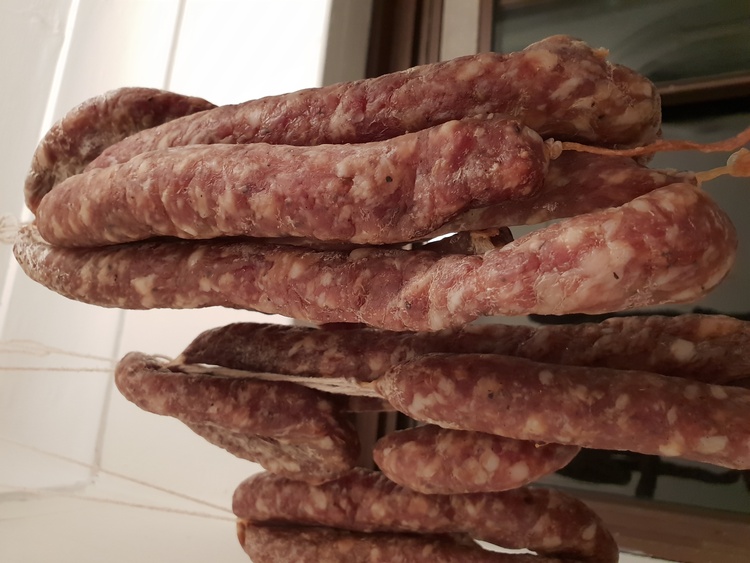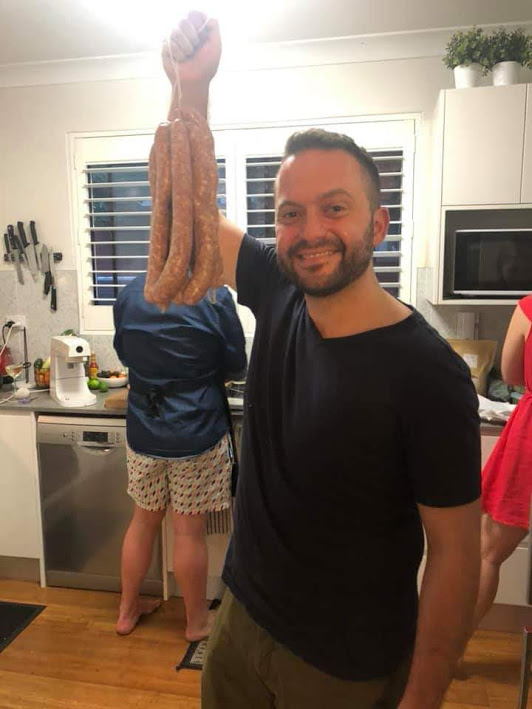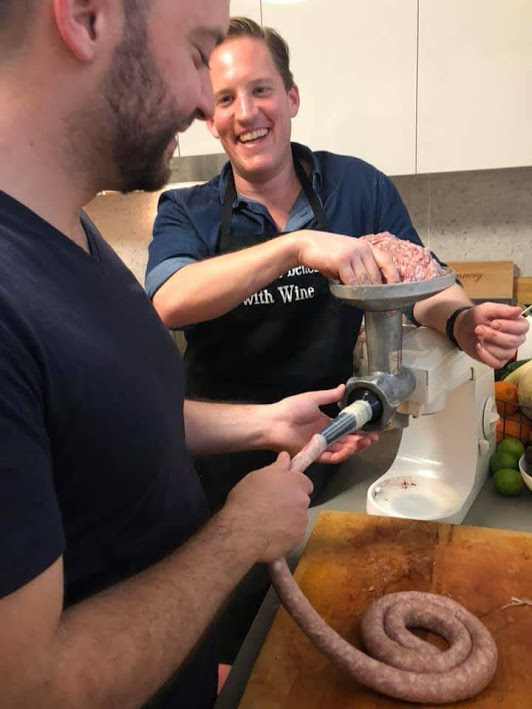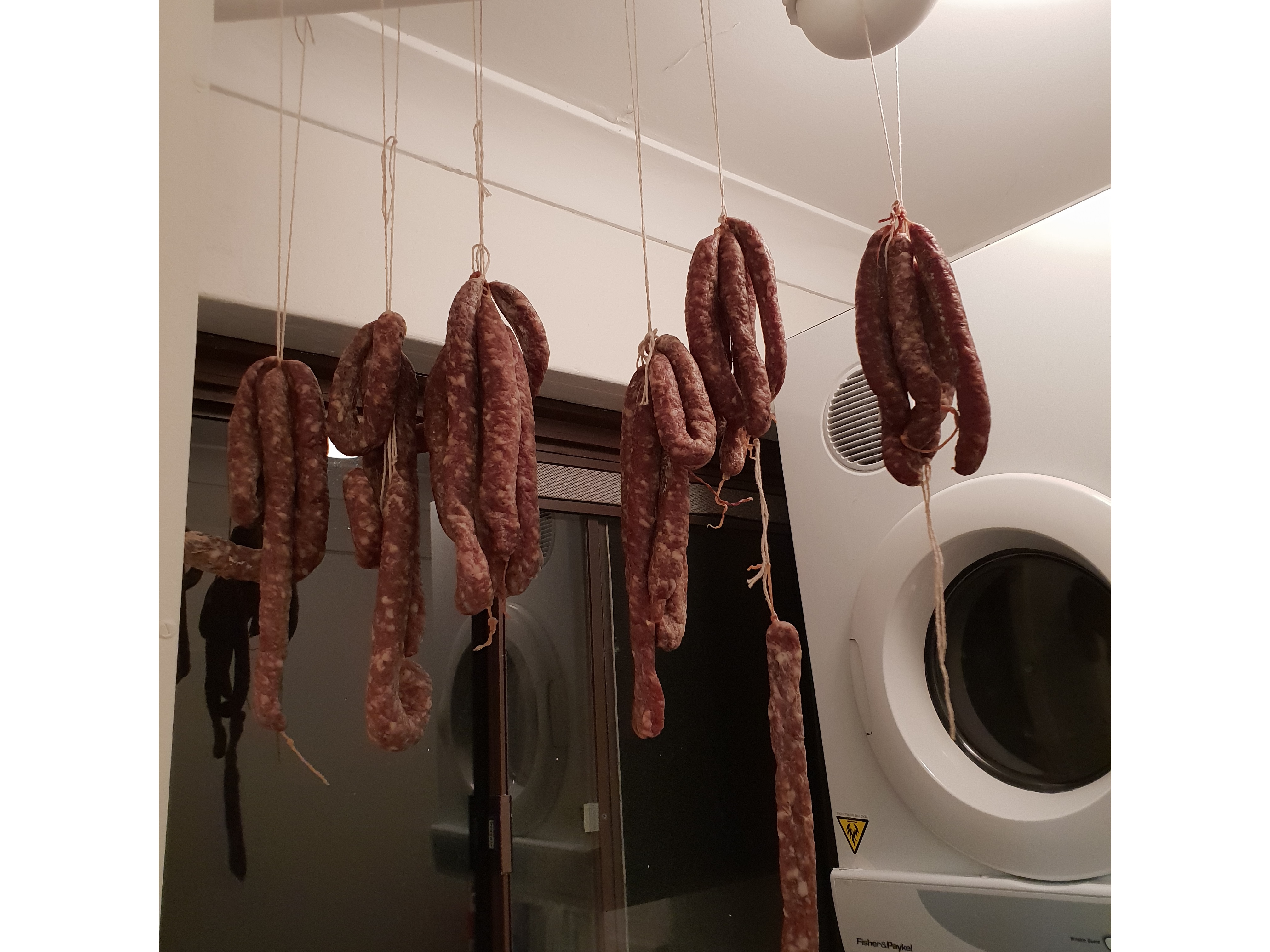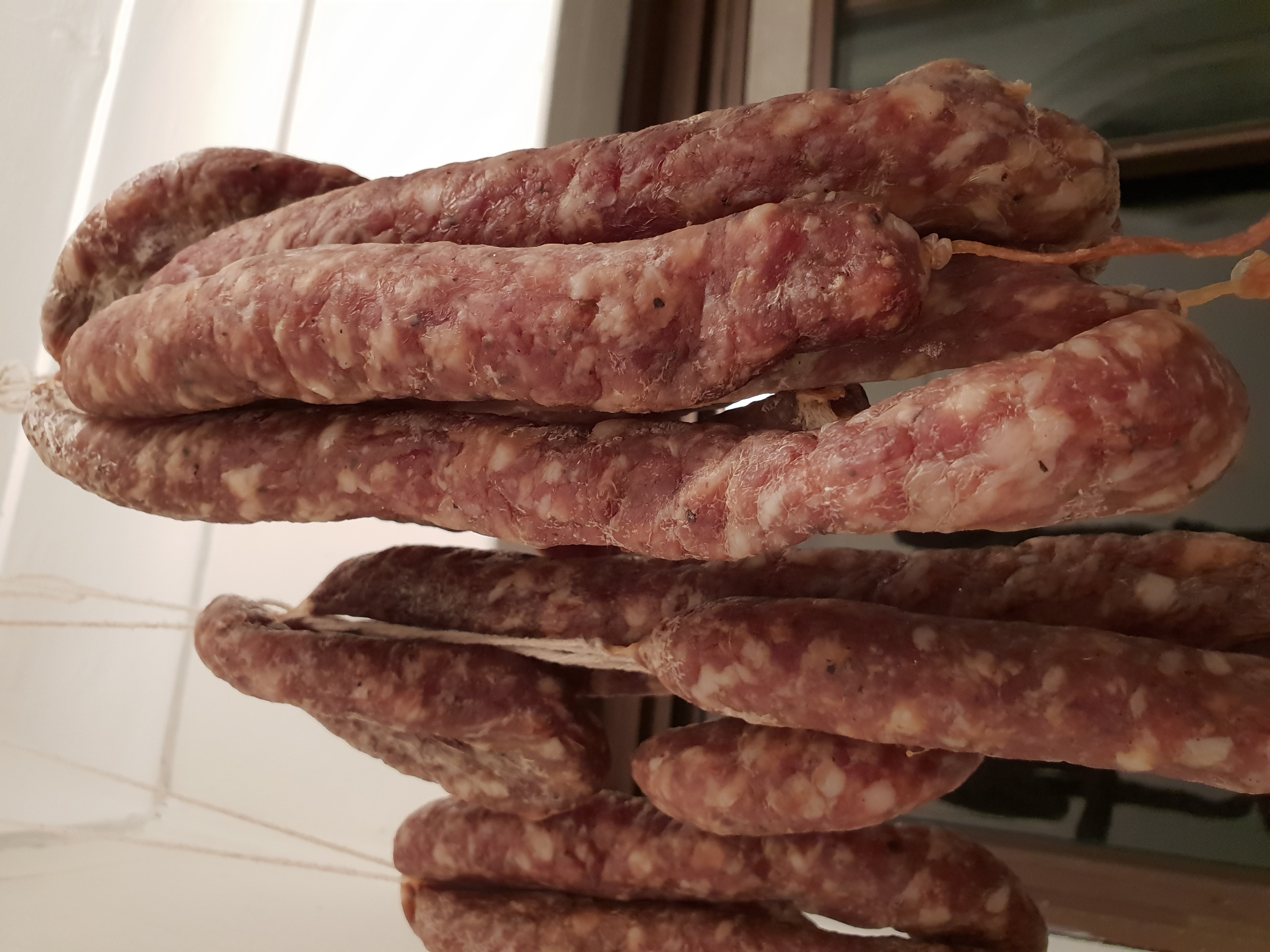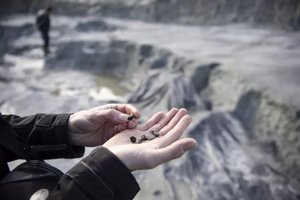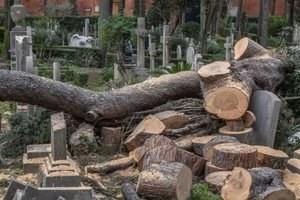We spoke to Dominic about his Italian heritage, and the ancient practice of salami-making which has reconnected him with culture.
Can you tell me a bit about your Italian heritage? Did you grow up with a strong sense of your culture and language?
My mum's side of the family has the Italian heritage. Her father came from the south, the Aeolian Islands, a small island called Salina. My nonna on the other hand came from the north, a small town called Toppo, north of Venice. I like to think that I'm connected to Italy for the entire length of the boot! Growing up, we called our grandmother "nonna" and I learned Italian at school but sadly it wasn't spoken at home, except on the odd occasion when one of nonna's old Italian friends came by. I lived with my nonna. She came from Toppo via Venice on a ship when she was five years old and I feel her story is very much a part of my own.
What are some examples of traditional Italian practices that were a part of your life since childhood?
I'm a second generation Italo-Australian so some of the traditional Italian practices have been diluted over time. What remains is certainly the food - its abundance, simplicity and focus on flavour - as well as the sense of family extended beyond just your parents and siblings. Christmas and Easter celebrations, and a lot of birthdays, were always big family affairs, starting just before lunch and ending in the early evening. My mum and her two sisters often compete over cooking, which once culminated in an Easter lasagne bake-off that nearly split the family in half. Well, not quite... but food is a serious matter and the passion of our Italian heritage is sometimes hard to contain. Family and food - to me, that's a huge part of my connection to Italy.
Have you ever felt a longing to re-engage with your cultural roots in a deeper way?
I'm a proud Australian but I think there is an innate curiosity in everyone to know about their past, to find out what made them who they are, and I'm no different. Learning more about the culture which so influenced my biological and familial make-up has helped me understand much more about myself. I'll never forget the first time I arrived in Salina, the island where my grandfather is from. I was in my early 20s. I walked the rocky beaches, picking up stones, smelling wild figs growing along the shore, diving for sea urchins with random nonne. It felt like I'd arrived to a home I never knew I'd left. I've been chasing that feeling ever since.
What first inspired you to begin making salami?
Hanging out in an Italian deli is my idea of a good time. If I could, I would only eat salami, mortadella, cheese, bread and anything else I could get my hands on from those fine provedores. I'm also quite a keen cook; I like to know how things are made, and why they were made in certain ways. Often, such foods are made out of necessity, either using up all parts of an animal or finding a way to store food for longer periods without refrigeration. Salami fits neatly into that category, is a food I enjoy and also makes me feel more connected to my grandparents, and the towns where they from.
Where did you find your recipes? Did you consult family?
Unfortunately I didn’t have a family recipe for salami. It just wasn't done in my time. Instead I scoured the internet, recipe sites, and message boards, looking at various recipes to gain a general understanding of the key steps and the ratios of meat, fat and salt to ensure proper fermentation. Then I rustled up a few “foodie” friends and we embarked on our first salami day, combining several recipes and tips in the process. It was a long day the first time we did it, but with practice it becomes easier as confidence grows.
How have you felt since you began this ancient practice? Do you feel like it has brought you closer to your roots?
It really is a humbling experience to learn these ancient techniques of food preservation. Every time I buy a salami in the shops, I remember the effort that goes into making it, I know why peasants like my ancestors used this technique back in Italy many moons ago. It's a joyful feeling and I feel more connected to my family history. It's also delicious.
Finally, your favourite type of salami, and the best thing about making salami and salsicce at home?
Of course it has to be homemade salami. Not necessarily my own, although mine is delightful. Most of the supermarket and deli salamis have preservatives and this, combined with other manufacturing techniques, means the salamis just aren't as tasty and not as beautifully meaty as homemade salami. Biting into a salami where you know each flavour that has gone in - the fennel, chilli, pork shoulder, back fat or even orange peel - brings a smile to your face. It's a salty, porky bite of Italian history that you can call your own.
If you would like to submit a story about reconnecting with Italian culture through traditional practices, get in touch!

